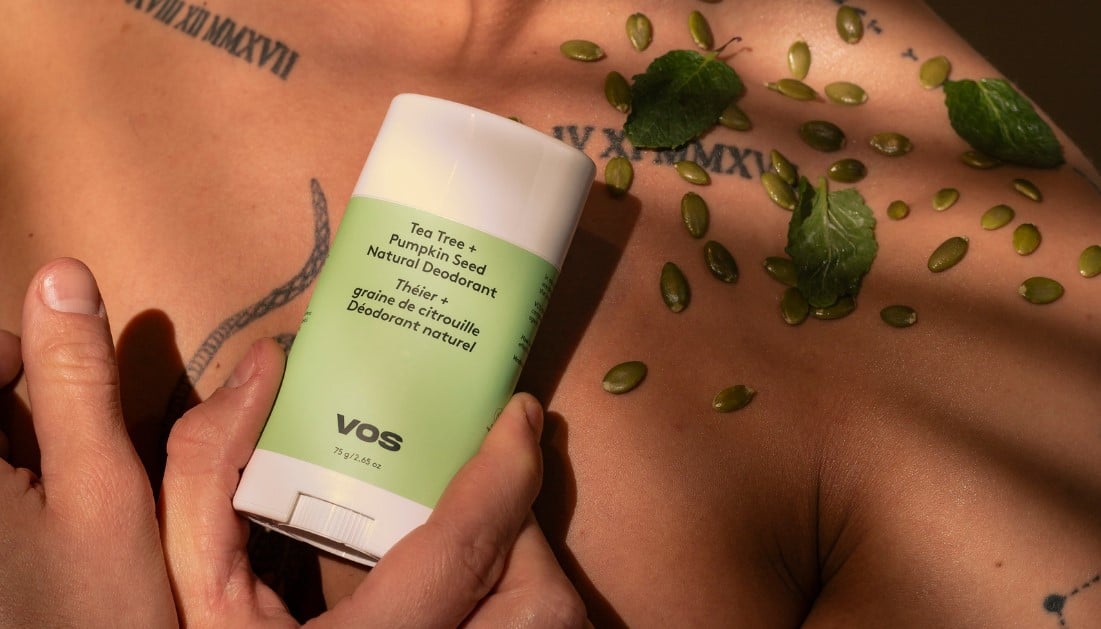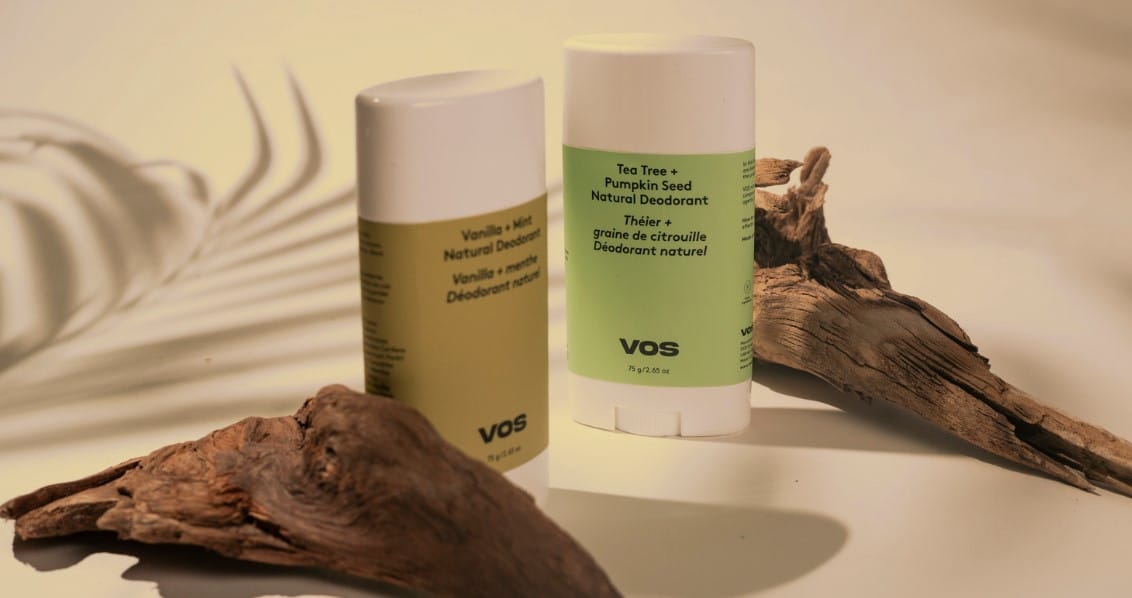Still on the fence about switching to a natural deodorant? We get it. There are a lot of myths and misconceptions surrounding both conventional and natural deodorants, and part of being a transparent brand is laying out all the facts—the good, the bad, and the ugly—to empower our readers to make a fully informed decision on their choices. So let’s talk about the real facts about deodorants, so you can choose the right one that’s best for your skin.

Deodorants vs. antiperspirants
First things first, let’s establish that there is a difference between deodorants and antiperspirants, even though they are still sometimes used interchangeably. While both aim to wick moisture and combat unpleasant body odors, they differ in both formulation and function. Deodorants let the body sweat and instead work to neutralize odors, while antiperspirants actively reduce or prevent sweating altogether.
Even though perspiration can make some of us feel embarrassed when it shows through our shirts or produce an unpleasant odor, sweating is actually our body’s way of regulating our temperature and cooling the skin. So, unless you’re prone to excessive sweating (which may be a health condition that should be checked out), it’s a perfectly natural process that can be beneficial (like when you’re working out or in a very hot environment) that can keep you from overheating.

Is aluminum bad for us?
Aluminum has had a bad rap since the ‘60s, when it was believed that exposure to this compound through our skin could lead to Alzheimer’s disease or breast cancer. We now know that there is no clear correlation between cancer and aluminum in antiperspirants.
As aluminum works to block the sweat glands, many also believe that toxins would then become trapped in the body with no way out. In actuality, our bodies get rid of toxins and harmful chemicals through the kidneys rather than our sweat glands. So, while studies suggest that excessive aluminum in the body can lead to bone diseases or dementia, there’s typically no risk of toxin buildup from aluminum compounds—if you have normal kidney function. If you have kidney problems or weakened kidney function, your body may not be able to filter the aluminum fast enough, and it’s best to avoid products that contain aluminum compounds.
Moreover, conventional deodorants and antiperspirants can still contain harmful ingredients that can irritate our skin or even disrupt our endocrine system, such as phthalates, parabens, triclosan, and artificial fragrances. And that’s why natural deodorant has become an increasingly popular choice.

Does natural deodorant actually work?
Natural deodorant typically uses plant-based ingredients and essential oils to neutralize odor while still letting the skin breathe and sweat. What’s important to note is that there is typically a transition period when switching over from conventional deodorants or antiperspirants, during which you may experience more sweating, moisture, and extra unpleasant odors. This underarm detox is actually perfectly normal—but it’s also when most people ditch the natural deodorant because they assume that it doesn’t work or that it’s actually making them smell worse. It usually takes around three or four weeks for the body to adjust to the natural ingredients, but the patience pays off. If you stick it out, natural deodorant can be just as effective—and oftentimes less irritating on the skin—as the traditional options. In the meantime, you can try washing the underarm area with charcoal soap to combat the funky odors (it can also help speed up the transition period).
Is natural deodorant actually better for you?
So, should you forget the other options and only go for natural deodorant? Full transparency: natural deodorant can be good for you, but certain traditional deodorants and antiperspirants are not necessarily unsafe. It all comes down to the specific formulations and ingredients, as well as personal preference. We all differ in body chemistry, and external factors like diet and the environment can also impact how we smell and how much we sweat. Just like other skin and body care products, there isn’t just one magic formula that works for everyone. There are also other preferences to consider like different scents, or stick versus spray, that vary from person to person. The most important thing to remember when choosing any product that goes onto or into your body is to do your due diligence: read the labels, know what ingredients can be harmful and should be avoided, and really pay attention to what your body needs. And, if you do choose to go for a natural deodorant, remember to be patient and let your body adjust to the natural ingredients before you write it off!






